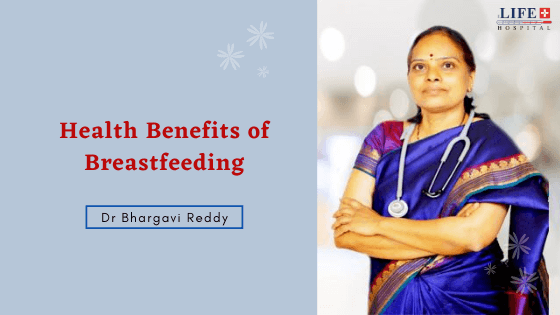
Best Lactation Consultant in Indiranagar | The Life+ Hospital
Sonia, a young mother, says, “I always thought that breastfeeding was child’s play, a natural act of motherhood. I felt that it would come on cue as soon as my child was born. But the truth is breastfeeding is an art. It is an art that takes patience and practice. As a first time mother, I was determined to breastfeed my child until he was two years old. I made this decision based on all the research that I gathered throughout my pregnancy.
A new mum’s breastfeeding experience can be a breeze or a hurdle or something in between. Some mothers take to it like a fish out of water, but others struggle.
Breast milk provides the correct nutrition for babies. It has the right amount of nutrients, is easily digested, and is readily available.
However, it is surprising that the rate of breastfeeding is as low as 30%. This is the reason; I want to give some well-researched information on the benefits of breastfeeding to everyone listening to me today.
It has been seen that while some women are unable to breastfeed, some choose not to.
Studies show breastfeeding has significant health benefits, for both the mother and the baby.
Breast Milk Provides Ideal Nutrition for Babies
Best Lactation Consultant in Indiranagar | The Life+ Hospital recommend exclusive breastfeeding for at least six months.
If possible, breastfeeding must be continued for at least one year along with other age-appropriate solid food.
I want to stress here that breast milk contains everything the baby needs for the first six months of life. The surprising fact about breast milk that most people are not aware of is that the composition even changes according to the baby’s changing needs, especially during the first month of life.
During the first few days after birth, the mother produces a thick and yellowish fluid called colostrum that is high in protein, low in sugar and has a large number of beneficial compounds.
Breast Milk Contains Essential Antibodies
Breast milk has a huge amount of antibodies that help your baby fight off viruses and bacteria.
As stated earlier colostrum or the first milk is loaded with antibodies.
When people are exposed to viruses or bacteria, they start producing antibodies, so does the mother.
These antibodies enter into the breast milk and get passed to the baby. These antibodies protect the baby from getting sick.
Breastfeeding Reduces Disease Risk
Research shows that breastfeeding may reduce your baby’s risk of many diseases such as
Middle ear infections:
- Respiratory tract infections
- Colds and infections
- Gut infections
- Intestinal tissue damage
- Sudden infant death syndrome (SIDS)
- Allergic diseases
- Inflammatory bowel disease
- Diabetes
- Childhood leukaemia:
The surprising fact about breastfeeding is that the benefits seem to last throughout childhood and even adulthood.
Breastfeeding May Make Children Smarter
Some studies have shown that there is some difference in brain development between breastfed and other babies.
Studies indicate that breastfed babies have higher IQ and are less likely to develop problems with learning as they grow older.
Breastfeeding Helps the Uterus Contract
The uterus grows immensely during pregnancy to accommodate your baby.
After delivery, a process known as involution helps it return to its previous size. Oxytocin, a hormone helps drive this process.
Your body secretes high amounts of oxytocin during labour to help deliver the baby.
During breastfeeding, there is an increase in oxytocin. It leads to uterine contractions, thus helping the uterus return to its previous size.
Breastfeeding Mothers Have a Lower Risk of Depression
Postpartum depression is becoming increasingly common in new mothers.
According to research, women who breastfeed seem less likely to develop postpartum depression, compared to others.
But the study also shows that mothers who go through postpartum depression early just after delivery are more likely to have trouble breastfeeding.
But for mothers out there who are unable to breastfeed due to various reasons, do not beat yourself over it. You can feed your baby with formula milk, and the baby will get the required nutrients.
But if it is in your hands, then choose to breastfeed as it contains antibodies and other elements that protect your baby from illness and chronic disease.
Also, mothers who breastfeed experience reduced stress and develop a bonding with their newborn sooner.
